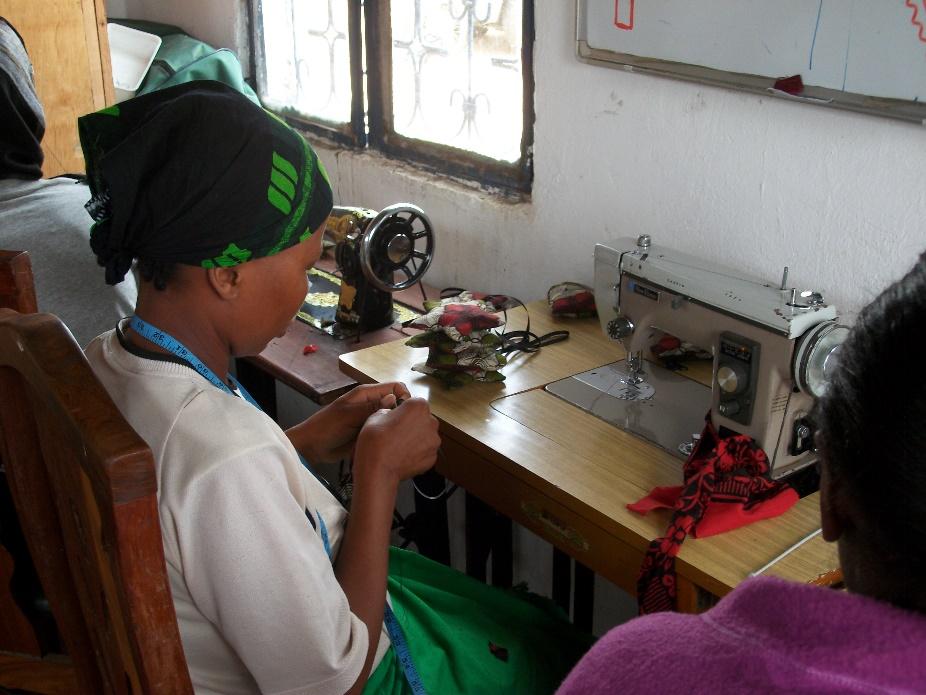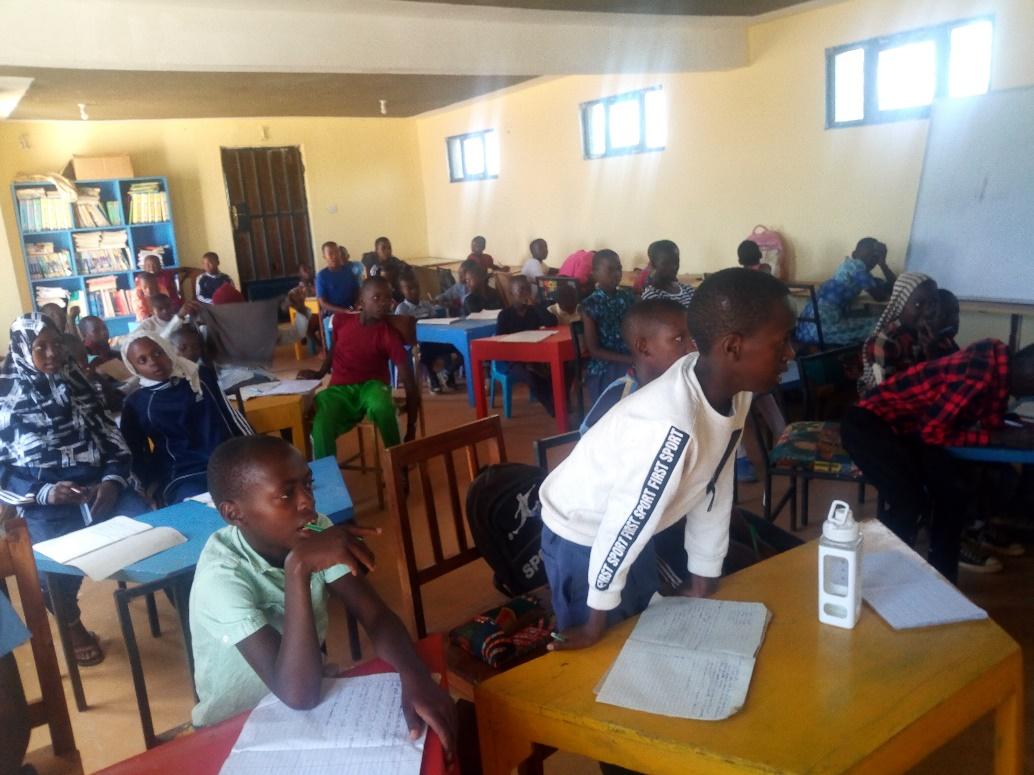|
|
About HeshimaHeshima means “Respect” in Swahili and this underlies all that we do. Where is Heshima located and what are its aims?Heshima, a registered charity in both the UK and Tanzania, is located near Kisongo, a township about 12km to the south of Arusha, in Northern Tanzania. This village largely serves the Maasai Community. Sadly, Maasai people often face discrimination and prejudice and find it difficult to get good jobs. At Heshima, we hope to support these people by offering local children a good start in school; by offering women training and skills to enable them to make an income and become more independent; and by providing vocational training in carpentry for young men. Heshima is based on a one-acre site and now features a house for the caretaker/groundsman, a classroom for the pre-school, a large 2 story building housing the textile project, shop and a computer laboratory, and toilets. On the remaining land, some fruit trees have been planted, but still leaving a large grassy space for the pre-school children to play on. The project employs a caretaker/groundsman, a teacher in charge of the pre-school who also has oversight of the textile project; and a textile trainer. The site generates electricity through solar panels, and is now also connected to the mains, and has wi-fi. Under the main building is a large tank for the storage of rainwater. Textile TrainingA well- equipped textile training centre has been operating for around 10 years, and is now located in 2 rooms in our main building. Local Maasai women come to learn textile skills, including basics such as measuring and cutting accurately. The trainer is a local lady who herself was trained by the project. The women who have completed their training can either stay on at Heshima making a variety of textile products, which are sold to provide them with an income and funding for Heshima, or they can leave and set up their own textile business in their own community. There is a small shop on-site where tourists are able to see and purchase items. Items are also sold in local tourist hotels and at an annual charity fair. From time-to-time English classes are provided, using the lap-tops, and information about health and nutrition is available. Some of the younger women have also formed themselves into a netball team, and have participated in several matches with other women’s teams, thus breaking gender stereotypes! Pre-SchoolWe have a free preschool class in its own classroom. Around 30 children aged from 3 to 6, some of whose mothers are involved in the textile training project, attend daily. Through creative play and more formal teaching, the children are introduced to English. There is a large play area equipped with swings, climbing frame, children’s bikes and many other toys. The children also have access to interactive resources on laptops. Saturday SchoolClass sizes in Government schools are big, and resources limited. In addition, teaching in primary schools is through the medium of Swahili, whereas at secondary level, all lessons are taught in English. Many children therefore struggle to cope in their first few months at secondary school. Children who are in their final year of a local primary school are invited to Heshima on a Saturday afternoon for two hours. By means of games and more formal teaching, the children are supported in their reading, speaking and writing of English. Two young Tanzanians, one of whom is the caretaker at Heshima, act as mentors. Currently around 50 children attend every week. Future DevelopmentIt is hoped to begin the construction in 2023 of a purpose-built workshop to enable young men to learn carpentry/woodwork skills, and therefore improve their chances of permanent employment. Funding is at present being sought for this project. Volunteering with HeshimaWe always need help at Heshima and thankfully people both old and young have volunteered, some for a couple of weeks, whilst others commit to a longer period of time … but all are useful! If you think that you can support the work of Heshima, for instance working with the textile ladies or the pre-school, or if you have DIY/construction skills, then please do contact the UK Secretary/Treasurer: Alan Cram acram@headweb.co.uk. You will need to buy your return flight: the nearest airport is Kilimanjaro, about 90 minutes away. A taxi can be booked for you (approximately £30/$35 each way). It may be possible to arrange accommodation for you on the Braeburn International School site for a small fee, which is around 8km away from the Heshima site. A tourist Visa is required ($50, which can be purchased at the airport or online), although if you are staying for a long period, you may have to purchase a more expensive volunteer visa. You will be expected to be self-sufficient, and have the confidence to make your own daily travel arrangements to/from the Heshima site by either dala-dala (local minibus) or borrowed bicycle. Tanzania is generally very safe for visitors during daylight hours, but you may feel more comfortable volunteering as a pair. Local people are generally very friendly, and are delighted when visitors engage with them, for instance, at the local market stalls. Language can be a problem: many people only have a smattering of English, Swahili being the “official” language, so a willingness to learn a few phrases in Swahili beforehand is always appreciated! Volunteers who are prepared to engage with the locals will benefit much more from their visit. Please remember that there is no National Health service in Tanzania and so all volunteers need to come with medical insurance. The Tanzanian Government also requires you to come with a yellow fever certificate and, at present (February 2023) evidence of Covid vaccination. Alternatively, if you think you can raise funds for Heshima, that would be great! Things to do and seeAll volunteers need “time out” and there are many things to do and see in and around Arusha: Arusha National Park is nearby as well as, further afield, Tarangire, Manyara, Serengeti and Ngorogoro Parks. In addition you can climb Mt Meru (5000m), towering above Arusha, and Kilimanjaro. But be warned: charges for visitors to all of these are high! For a cheaper day out, the Monduli Hills (about £1/$1.50 on the dala-dala) are worth exploring, and there is also an organised walking group which meets on Sundays. Other local attractions include the weekly Maasai Market in Kisongo, and the Maasai Craft Market in Arusha. For the more adventurous, there is Dar-es Salaam, recently reconnected to Arusha by overnight train, and Zanzibar: both also accessed by flights from the local Arusha airport. Please do not hesitate to contact us by email if you would like further information, or feel able to support Heshima in any way. |







